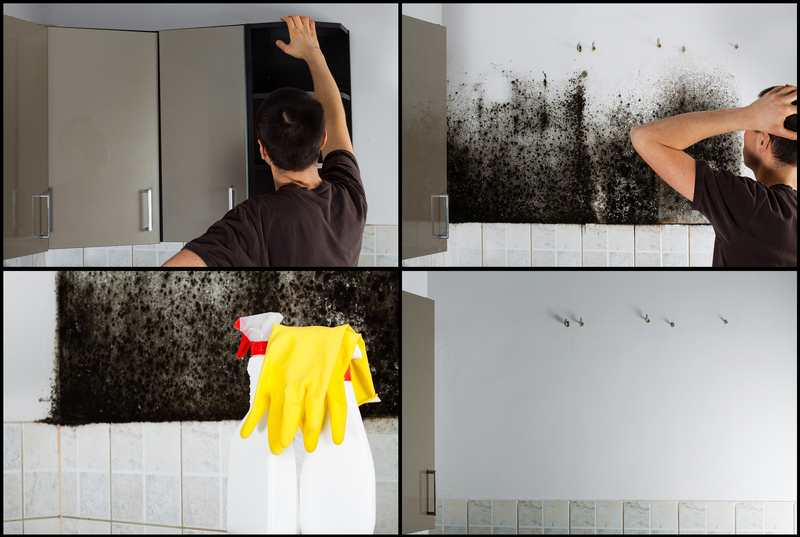The Psychological Benefits of Cleaning
Posted on 01/05/2025
Cleaning is often viewed as a mundane chore, a never-ending task that is necessitated by the inevitable accumulation of dirt and clutter in our living spaces. Yet, beyond the apparent aesthetic and sanitary outcomes, cleaning holds significant psychological benefits that are seldom discussed. From boosting mental health to enhancing cognitive function, the act of cleaning can serve as a powerful tool for improving overall well-being.
Mental Health Benefits of Cleaning
Cleaning is not just about maintaining a tidy environment; it's also a means to improve mental health. The act of decluttering and organizing can provide a tremendous sense of accomplishment and control, which is particularly impactful for those suffering from anxiety or depression.
Reduced Stress and Anxiety
A disorganized space can be overwhelming, serving as a constant visual reminder of tasks left undone. This can increase stress levels and trigger anxiety. Engaging in cleaning activities allows individuals to focus on something tangible and controllable, often providing immediate, visible results. This sense of accomplishment can offer significant emotional relief.
Improved Mood
Research has shown that engaging in routine cleaning can improve mood. The physical activity involved in cleaning can release endorphins, the body's natural mood lifters. Moreover, the aesthetic transformation of a clean space tends to elicit feelings of satisfaction and happiness, brightening one's overall demeanor.

Creating a Sense of Accomplishment
Completing a cleaning task provides an instant sense of accomplishment. Even small achievements, like washing dishes or folding laundry, can enhance self-esteem and provide a psychological boost.
Building a Routine
Routines can offer stability and a sense of normalcy, which is particularly beneficial during times of uncertainty. By incorporating cleaning into a daily or weekly schedule, individuals can create a structure that aids in emotional and psychological well-being. The predictability of a cleaning routine can be grounding and comforting.
Tactile Satisfaction
There's something innately satisfying about the tactile experience of cleaning--the feel of a soapy sponge, the swish of a brush, or the smooth glide of a vacuum over a carpet. These sensory experiences can be particularly rewarding, offering immediate feedback and gratification.
Cognitive Benefits of Cleaning
Cleaning doesn't just affect emotional health; it also has profound implications for cognitive functioning. The act of cleaning can enhance cognitive functions such as focus, memory, and problem-solving skills.
Enhanced Concentration
A clean and organized environment minimizes distractions, allowing for better focus and concentration. Clutter can make it difficult to concentrate, as the brain is constantly processing the mess as an unresolved task. By cleaning, individuals can create a streamlined space that facilitates better thinking and productivity.
Improved Problem-Solving Skills
Cleaning often involves decision-making and problem-solving. Where should this item go? How can I best organize this space? These little challenges exercise the brain and improve cognitive flexibility, enhancing problem-solving skills over time.
Better Memory
Being in a cluttered space can overwhelm the brain, reducing its efficiency in processing information and recalling memories. A clean space allows the brain to operate more efficiently, aiding memory retention and recall.
Social Benefits of a Clean Environment
The psychological benefits of cleaning extend to social contexts as well. Maintaining a clean space can improve relationships and social interactions, as well as foster a sense of community and shared responsibility.
Better Relationships
Living in a clean environment can reduce tension among housemates or family members. A cluttered and dirty space can often become a source of conflict, whereas a clean home fosters harmony and cooperation. Making cleaning a communal activity can enhance relationships, promoting teamwork and mutual respect.
Increased Hospitality
A clean space is more inviting, making people more inclined to host social gatherings. This can enhance social connections and create opportunities for meaningful interactions. Hospitality showcases an element of care and respect towards guests, making your living space an extension of your kindness and thoughtfulness.
The Therapeutic Nature of Cleaning
For many, cleaning can serve as a form of therapy. Activities that involve repetitive motions, such as sweeping or scrubbing, can be meditative and soothing, providing an avenue for mindfulness and stress relief.
Mindfulness in Cleaning
Cleaning can be turned into a mindfulness practice by focusing on the task at hand and immersing oneself in the sensory experiences associated with it. This can help individuals stay present, reducing worries about the past or future. The rhythms of cleaning tasks can serve as a grounding force, making it easier to cultivate a mindful state.
Physical Activity and Mental Health
The physical exertion involved in cleaning can help release stress and anxiety. Activities like vacuuming, mopping, or wiping surfaces get the body moving, which has been shown to improve mental health by releasing endorphins and reducing stress hormones like cortisol.

Cleaning as a Coping Mechanism
In times of emotional distress or when coping with life's challenges, cleaning can provide a healthy outlet for channeling emotions and regaining a sense of control.
Regaining Control
Cleaning allows individuals to exert control over their environment, which can be particularly empowering during periods of chaos or uncertainty. Taking charge of one's immediate surroundings can provide a symbolic and tangible sense of mastery over life's circumstances, helping to build resilience.
Channeling Emotions
The physicality of cleaning can also serve as an emotional release. Anger, frustration, and sadness can be channeled into the task, offering a constructive way to process these challenging emotions.
Conclusion
The psychological benefits of cleaning extend far beyond the obvious physical results. From reducing stress and anxiety to enhancing mental clarity and cognitive function, the act of cleaning is a powerful tool for improving overall well-being. A clean space fosters a sense of accomplishment and control, promotes better social interactions, and provides an avenue for mindfulness and emotional release. By recognizing and embracing these benefits, individuals can transform a mundane chore into a meaningful practice that enriches their mental and emotional health.
Latest Posts
Tips for Keeping Wood Floors Spotless
Weekly Cleaning: Top Advantages
Routine Carpet Cleaning: Expert Recommendations



